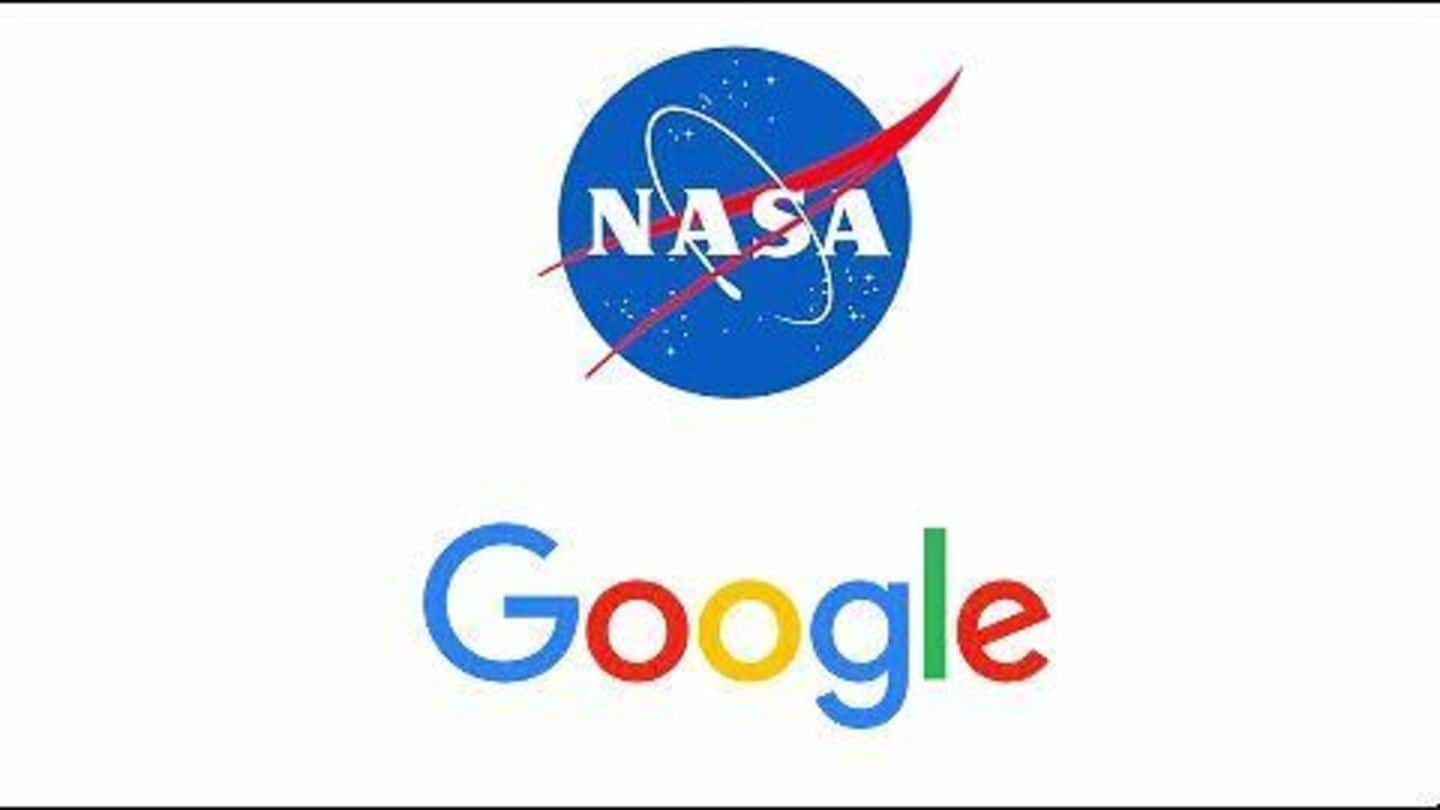
Google, NASA display quantum computing tech
What's the story
Google and NASA made a public debut of their new quantum supercomputing system that will revolutionize the computing industry. They are working with the Universities Space Research Association at NASA's Ames Research Center in California. The goal of the project is to develop faster, multifaceted computing systems. Researchers said the system was still experimental and is far from being commercially applicable.
Information
What is quantum computing?
Quantum computing studies theoretical computation systems that make direct use of quantum-mechanical phenomena, such as superposition and entanglement, to perform operations on data faster than regular computers.
Basics
Difference from a regular computer
In normal computers, bits are the smallest units of information and are valued as either 0 or 1. In quantum computers, 'q-bits' are the units of information and can simultaneously exist in any proportions of both 0 and 1, a phenomenon called superposition. A regular computer performs calculations sequentially but a quantum computer performs multiple calculations simultaneously, making it exponentially faster at complex calculations.
History
Quantum computing: History
On 1 March 1981, Richard Feynman proposed the idea of using quantum phenomena to perform computations. In a speech at the First Conference on the Physics of Computation at MIT, he suggested a simple model for a quantum computer. In coming years, research intensified and in 1998, the first working 3-qubit NMR (nuclear magnetic resonance) quantum computer was built by MIT and Waterloo University.
Developments
Highlights in quantum computing technology
In March 1994, Peter Shor invented an algorithm allowing quantum computers to calculate large amounts of data relatively quickly. In 2001, IBM executed Shor's algorithm on a 7-qubit quantum computer by calculating the factors of 15. In 2009, a team at Yale created the first solid state quantum processor. In 2011, D-Wave systems announced the first 128-qbit quantum computer, later purchased by Lockheed Martin.
Benefits
Benefits of quantum computing
Quantum computers vastly reduce the time taken to perform calculations. Quantum computing can also be used to provide highly secure encryption systems for data security. These computers would also enhance efforts to create a complex artificial intelligence system as the complexity of quantum physics allows for data processing capabilities that can mimic the complexity of the human brain.
Challenges
Challenges faced in quantum computing
Q-bits are very difficult to control and manipulate, as any disturbance in their surroundings cause them to lose their quantum state, rendering them useless. Quantum computing research is extremely expensive and it takes a long time for these experiments to produce tangible results. Parts for quantum computing are built on a microscopic scale, making manufacturing a highly complex and cumbersome task.
8 Dec 2015
IBM to make quantum technology for US intelligence
IBM got a multi-year grant from the Intelligence Advanced Research Projects Activity (IARPA) to build key components of what it calls a universal quantum computer. The grant will authorize IBM to build super-fast quantum computers for US intelligence agencies in an effort to improve artificial intelligence technology. IBM will work on the Cryogenic Computer Complexity (C3) program with IARPA, Raytheon-BBN and Northop Grumman.